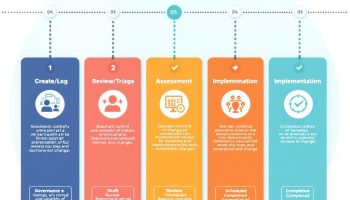
The Role of a Construction Coordinator
A construction coordinator acts as the key organizer of building projects, managing workflows and ensuring effective collaboration across teams. By coordinating contractors, architects, engineers, and clients, the construction coordinator turns blueprints into actual structures while maintaining quality standards, budget constraints, and timeline requirements.
Key Takeaways:
- Construction coordinators are responsible for comprehensive project management, from initial planning through final completion.
- The role requires exceptional organizational skills and the ability to coordinate between multiple stakeholders.
- Technical proficiency in construction management software and strong communication abilities are essential.
- Continuous professional development and certification enhance career advancement opportunities.
- Effective construction coordinators can significantly improve project productivity and outcomes.
At its core, the construction coordinator position involves keeping all aspects of a project aligned and moving forward. You’ll need to understand both the technical aspects of construction and the interpersonal dynamics of team management. Daily tasks often include scheduling contractor work, resolving on-site issues, tracking material deliveries, and reporting progress to stakeholders.
The construction industry demands precision and attention to detail. Your role as coordinator requires mastering specialized planning tools while developing sharp communication skills. Successful coordinators excel at anticipating problems before they arise and creating quick solutions when unexpected challenges emerge.
Career growth in this field depends on building a solid track record of completed projects. Many professionals pursue certifications from organizations like the Construction Management Association of America or take specialized courses in construction project management. These credentials can help you advance to senior positions with higher pay and greater responsibility.
The construction coordinator serves as the central point of contact for all project participants. You’ll facilitate clear information exchange between technical teams and non-technical stakeholders. This communication bridge proves essential for maintaining project momentum and avoiding costly misunderstandings or delays.
Technology continues to transform the construction coordination role. Modern coordinators use digital tools for everything from BIM modeling to resource tracking. Staying current with these technological advances helps you manage projects more efficiently and accurately.
Your ability to balance competing priorities makes the difference between project success and failure. Expert coordinators know when to push for faster progress and when to focus on quality details. This balanced approach earns respect from team members and clients alike.
“A construction coordinator is the vital conductor of a project symphony, expertly harmonizing the diverse contributions of contractors, architects, and engineers to transform blueprints into thriving edifices. With a keen eye for detail and a commitment to quality, they not only navigate complexities but also elevate project outcomes, ensuring every phase resonates with excellence.”
Project Coordination and Strategic Management
As a construction coordinator, you’ll serve as the central professional responsible for overseeing complex construction projects from inception to completion. Your primary mission is ensuring projects finish on time, within budget, while meeting all quality standards. The construction coordinator role requires exceptional organizational skills as you’ll coordinate between contractors, architects, engineers, suppliers, and clients throughout the project lifecycle.
You’ll prevent costly delays by anticipating potential issues and optimizing resource allocation across project phases. This strategic positioning makes you invaluable to effective project leadership and successful outcomes. A construction coordinator typically manages multiple critical responsibilities simultaneously, requiring both technical expertise and strong interpersonal abilities.
Core Responsibilities of a Construction Coordinator
Your day-to-day responsibilities as a construction coordinator will include:
- Developing detailed project schedules and coordinating activities between various teams
- Tracking comprehensive budgets and managing resource allocation efficiently
- Negotiating with suppliers and subcontractors to secure optimal terms
- Maintaining critical project documentation, permits, and compliance records
- Ensuring adherence to building codes and implementing robust safety protocols
- Identifying and resolving problems before they impact project timelines
These responsibilities require you to be detail-oriented while maintaining a broad strategic view. Effective construction coordinators excel at project communication with stakeholders at all levels.
The role demands technical proficiency in blueprint interpretation and construction management software like Procore or Autodesk Construction Cloud. Most employers require a bachelor’s degree in Construction Management, Engineering, or Architecture, along with professional certifications such as PMP or CCM. With these qualifications, construction coordinators can earn between $34,611 and $85,962 annually.
Your success hinges on creating collaborative environments where cross-functional teams work together effectively. You’ll need to establish clear communication channels and satisfy stakeholders by providing regular status updates while promptly addressing conflicts. Construction coordinators who master these aspects of the role often advance into senior project management positions.
By leveraging technology like BIM systems and mobile-accessible tracking platforms, you’ll enhance your effectiveness as a construction coordinator while demonstrating your value to the organization. This strategic use of tools enables real-time monitoring of resources and budgets, helping you make informed decisions that keep projects on track.

Core Responsibilities and Project Oversight
As a construction coordinator, you’ll manage the entire project lifecycle from planning to completion. You’ll develop detailed schedules that track milestones, deadlines, and dependencies while maintaining comprehensive budget oversight. A construction coordinator typically handles resource allocation, expense tracking, and financial reporting to prevent cost overruns.
You’ll need to negotiate effectively with suppliers and subcontractors to secure favorable terms while ensuring quality standards. Effective project leadership requires maintaining meticulous documentation including permits, contracts, change orders, and inspection reports throughout the construction process.
Regulatory compliance falls squarely within your domain as a construction coordinator. You’ll ensure all work adheres to local building codes, safety regulations, and environmental standards. This includes coordinating inspections and addressing any compliance issues promptly.
When challenges arise, you’ll implement strategic problem-solving approaches to minimize disruptions. This might involve project crashing techniques to accelerate timelines or reallocating resources to address bottlenecks.
Daily Operational Management
Your day-to-day responsibilities as a construction coordinator include:
- Conducting regular site visits to monitor progress and quality control
- Facilitating team meetings to address immediate concerns and coordinate activities
- Managing material deliveries and storage logistics
- Tracking labor hours and productivity metrics
- Implementing safety protocols and ensuring compliance
- Resolving conflicts between subcontractors or team members
- Updating project schedules based on actual progress
Technology plays a crucial role in modern construction coordination. You’ll use specialized software for document management, scheduling, and budget tracking. Many construction coordinators now employ digital tools for real-time monitoring of project metrics and performance indicators.
The construction coordinator serves as the communication hub between all stakeholders. You’ll need to translate technical information for non-technical audiences while ensuring all team members understand their responsibilities and deadlines. This requires exceptional active listening skills to address concerns before they become major issues.
Success in this role depends on balancing technical knowledge with people management skills. The most effective construction coordinators combine analytical thinking with relationship building to keep projects moving forward efficiently.
Construction projects that employ effective project management techniques can increase productivity by up to 20%.
forbes.com
Technical Skills and Qualifications
You’ll need specific technical capabilities to excel as a construction coordinator in today’s complex building environment. A bachelor’s degree in Construction Management, Engineering, or Architecture forms the educational foundation for this role. The construction coordinator position demands proficiency in blueprint interpretation and the ability to manage technical documentation effectively throughout project lifecycles.
Professional certifications significantly enhance your marketability and expertise. The PMP (Project Management Professional) and CCM (Certified Construction Manager) certifications are particularly valuable for construction coordinators seeking to demonstrate their technical competence. These credentials validate your ability to manage construction projects using standardized methodologies and best practices.
Technical software proficiency is non-negotiable for modern construction coordinators. You’ll need to master platforms like Procore and Autodesk Construction Cloud to effectively track project progress, coordinate resources, and share critical information with stakeholders. These tools help construction coordinators maintain visibility across all project components and facilitate collaboration between diverse teams.
The construction coordinator role demands a unique blend of technical and interpersonal capabilities. You’ll need to understand construction sequencing, materials specifications, and building codes while also coordinating effectively with contractors, suppliers, and clients. This combination of hard and soft skills makes the position both challenging and rewarding.
Compensation and Growth Potential
Construction coordinator salaries typically range from $34,611 to $85,962, with variations based on experience, location, and project complexity. Your earning potential increases significantly with specialized expertise in areas like sustainable construction or healthcare facility development. Many construction coordinators leverage their experience to advance into senior project management roles with expanded responsibilities and compensation.
The following table outlines the key technical competencies required for construction coordinators:
| Technical Skill Area | Core Competencies |
|---|---|
| Document Management | Blueprint reading, specification interpretation, permit processing |
| Software Proficiency | Procore, Autodesk, Microsoft Project, scheduling software |
| Technical Knowledge | Building codes, construction methods, materials properties |
| Certifications | PMP, CCM, OSHA safety credentials |
| Budget Management | Cost estimation, variance tracking, financial reporting |
Construction coordinators who continuously update their technical skills remain competitive in this evolving field. You should pursue ongoing education in emerging construction technologies like BIM (Building Information Modeling) and risk response strategies to maximize your effectiveness and career growth potential.
According to a survey by the National Institute of Building Sciences, projects that incorporate 3D modeling and coordinated documentation can see a reduction in costs by up to 20%.
nibs.org
Communication and Stakeholder Management
As a construction coordinator, you’ll serve as the critical link between all project participants. Your ability to facilitate effective communication can make or break project success. The construction coordinator acts as the primary intermediary who must maintain clear information channels among architects, engineers, contractors, suppliers, clients, and regulatory officials.
Effective stakeholder management requires you to identify all parties with interests in your project. You’ll need to identify project stakeholders early and analyze their influence, expectations, and potential impact on project outcomes. This proactive approach helps you develop targeted communication strategies for each group.
Regular communication touchpoints are essential in your role. These include:
- Daily team briefings to address immediate concerns
- Weekly progress meetings with key contractors and subcontractors
- Bi-weekly client updates with visual documentation
- Monthly comprehensive stakeholder reports highlighting milestones
- Special-focus meetings when addressing specific challenges
Conflict resolution becomes a crucial skill in your construction coordinator toolkit. You must address disagreements promptly before they escalate into costly delays. This requires developing active listening skills to understand underlying concerns while remaining impartial.
Documentation serves as your communication safeguard. Every decision, change order, and stakeholder interaction should be properly recorded. This creates an audit trail that protects all parties and provides clarity when questions arise. Many construction coordinators implement digital documentation systems that allow real-time updates accessible to all relevant stakeholders.
Clear reporting structures help you manage expectations effectively. Your status reports should provide honest assessments of project health without creating unnecessary alarm. Developing a standardized reporting format helps stakeholders quickly identify critical information without wading through excessive details.
Collaborative Environment Creation
Building a collaborative project atmosphere requires intentional effort from the construction coordinator. You’ll need to establish an environment where team members feel comfortable sharing concerns and suggestions. This open exchange often leads to innovative solutions and prevents costly rework.
Successful construction coordinators recognize that project collaboration extends beyond simple information sharing. You must actively engage stakeholders in appropriate decision-making processes, ensuring they feel valued and heard. This collaborative approach strengthens buy-in and commitment to project outcomes.
Digital collaboration tools have transformed how construction coordinators manage stakeholder relationships. Cloud-based platforms allow real-time information sharing, reducing misunderstandings and keeping all parties aligned. These technologies enable you to coordinate effectively even when team members are geographically dispersed.

Technology and Project Management Tools
As a construction coordinator, you’ll need to master various technological tools to effectively manage complex projects. The construction industry has embraced digital transformation, making technology proficiency essential for your success. Modern construction coordinators rely on specialized software to streamline workflows and enhance project visibility.
You’ll need to integrate advanced construction management platforms like Procore and Autodesk Construction Cloud into your daily operations. These systems help you track progress, manage documentation, and coordinate between multiple stakeholders. A competent construction coordinator uses these tools to maintain real-time updates on project status and quickly identify potential delays or issues.
Building Information Modeling (BIM) has revolutionized how construction coordinators visualize and manage projects. This technology creates detailed 3D models that incorporate all physical and functional characteristics of buildings. By utilizing BIM, you can detect clashes between different building systems before they become costly on-site problems. Effective project collaboration becomes easier when all team members can reference the same detailed model.
Mobile-accessible project tracking platforms have become indispensable for construction coordinators who need to manage work across multiple job sites. These tools allow you to update information, check schedules, and communicate with team members regardless of location. When implementing these technologies, focus on solutions that offer:
- Real-time budget tracking and financial monitoring
- Digital document management and approval workflows
- Automated scheduling and resource allocation
- Interactive reporting dashboards
- Cloud-based collaboration features
Risk management software helps you identify potential issues before they impact your project. By combining these tools with proper risk response strategies, you can maintain project momentum even when challenges arise. Construction coordinators who excel at integrating technology into their workflow can significantly improve project outcomes.
Data analytics capabilities within these platforms enable you to make evidence-based decisions rather than relying on intuition. You can track performance metrics, analyze productivity patterns, and optimize resource allocation based on historical data. This analytical approach helps you avoid common project management mistakes that often lead to budget overruns or schedule delays.
Career Development and Industry Impact
As a construction coordinator, you’ll play a strategic role in the successful delivery of projects while creating a foundation for significant career advancement. Your daily coordination efforts directly impact construction timelines, budget adherence, and quality outcomes. Growing into this role offers a clear pathway toward leadership positions within the construction industry.
Your career trajectory as a construction coordinator can lead to several advanced positions including senior project manager, construction director, or operations executive. Many construction coordinators transition into specialized roles focusing on sustainability, technology implementation, or safety management. Each specialization presents unique opportunities to shape industry standards and practices.
Professional development for a construction coordinator should include:
- Pursuing advanced certifications such as PMP or CCM
- Developing expertise with emerging construction technologies
- Building strong relationships across industry networks
- Gaining experience with diverse project types and scales
- Mastering project leadership methodologies
The construction coordinator position serves as an excellent stepping stone for industry impact. You’ll directly influence how projects are executed and standards are maintained. By implementing effective project constraints management, you establish yourself as a valuable asset to construction firms.
Building Your Professional Influence
Construction coordinators who excel typically demonstrate specific qualities that enhance their industry impact:
- Exceptional problem-solving capabilities
- Strong negotiation and conflict resolution skills
- Advanced technical knowledge of construction methods
- Ability to adapt to changing project conditions
- Commitment to continuous professional improvement
Your effectiveness as a construction coordinator largely depends on staying current with industry developments. This includes understanding new building codes, environmental regulations, and technological innovations. Maintaining awareness of these changes helps you navigate project roadblocks more efficiently.
The following table illustrates typical career progression paths for construction coordinators:
| Career Level | Position Title | Primary Responsibilities |
|---|---|---|
| Entry | Construction Coordinator | Daily project coordination, document management, schedule monitoring |
| Mid-Level | Senior Construction Coordinator | Team leadership, complex project management, client relationship management |
| Advanced | Project Manager/Director | Strategic planning, multiple project oversight, business development |
| Executive | Construction Operations Director | Organizational leadership, policy development, company-wide strategy |






